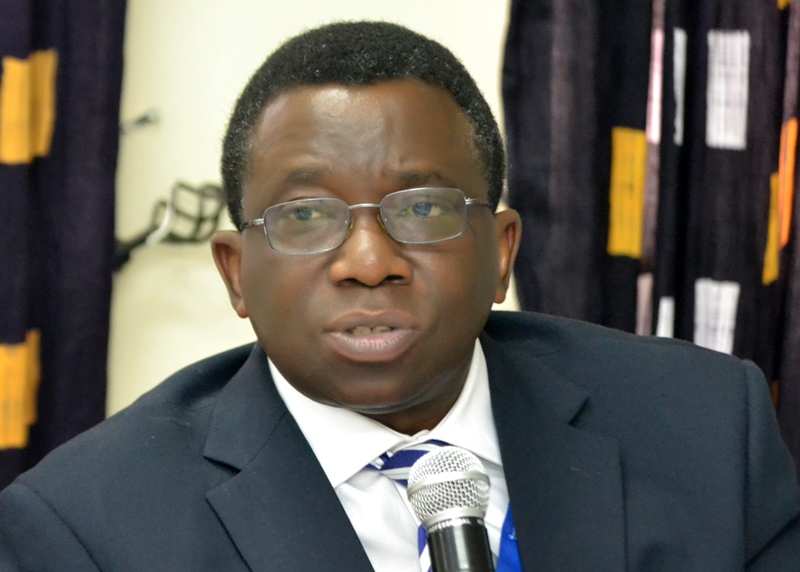Health
Nigeria on track toward eliminating cervical cancer – Prof. Adewole

Former Minister of Health, Prof. Isaac Adewole, says Nigeria is on track toward eliminating cervical cancer with various interventions employed by the Federal Government, World Health Organisation (WHO) and the Commonwealth.
Adewole, who was the Minister of Health from 2015 to 2019, said this on Tuesday in a telephone interview with our reporter.
He said the establishment of cancer treatment centres across the country was WHO’s and Commonwealth international task force’s approach to eliminating the disease globally.
He added that “what we know is that many more people are reporting in the hospitals simply because of heightened awareness and because we have established more treatment centres in the last couple of years.
“So, people are becoming more reassured that cancer can be treated and managed if detected early and one of the things the present administration has done is to establish treatment centres across the country.
“Things are improving and once all the centres are fully operational, things will get better.”
Adewole also said that current statistics shows that Nigeria records about 15,000 cases of cervical cancer annually and lose about 10,500.
This, he said, translates to a case fatality of about 75 per cent or 0.7 per cent, indicating seven deaths out of every 10 cases.
He added that it was a worrisome figure as it happened to be the highest in the world as Latin America, South-East Asia and North America record a case fatality of under 0.4 per cent.
Explaining why more cases were presented in hospitals, he said it had to do with the heightened attention globally, “as everyone has now keyed into the international agenda to beam searchlight on the disease.
“We now know more about its cause and it is a virus called Human Papilloma Virus (HPV).
“It is a sexually transmitted virus and the only female who is not really prone to it is one who has not had sexual intercourse, but any female who has had sexual intercourse is prone to it.
“However, the beauty is that majority of those who develop the infection will clear it and only a very small minority will go on to develop cervical cancer.
“What we know is that it takes about 20 to 30 years for the cancer to develop.
“So current available knowledge enables us to give HPV vaccine to prevent people from acquiring the infection and then we can do cervical cancer screening.”
The former minister said that the most popular form of testing is the PAP Smear but added that there are other more effective techniques such as visual inspection and the use of HP DNA testing.
“The WHO is also recommending that 90 per cent of girls should have HP vaccine when they are 15 years of age because that is about the age of sexual debut; girls should take the vaccine before they become sexually active.
“The second target of the WHO elimination agenda is that 70 per cent of women should be screened with high quality performance test by age 35, and then repeat it by age 45.
“The third pillar of the WHO strategy is that 90 per cent of women who identify with the disease, either cancer or pre-malignant lesion of the cervix should be treated.
“So, with the combination of these three pillar strategies, we can eliminate cancer,” he assured.
Adewole disclosed that the National Primary Health Care Development Agency (NPHCDA) is scheduled to start HPV vaccination in 2023, to become part of the nation’s routine immunisation.
He also said that the signing of the National Health Insurance Authority (NHIA) bill earlier in the year into law is a welcome development as it will ease the burden of cancer treatment on patients.
According to him, one of the basic packages of care in the schedule of the NHIA is cancer screening.
“So, if NHIA is going to offer health insurance to almost all Nigerians, the implication is that almost all Nigerian women can now access screening and be covered by health insurance.
“Nigeria may actually be the first country in Africa that will have universal cancer screening programme covered by health insurance.”
On treatment for those who have already contracted the disease, Adewole said there are quite a number of outlets to assist those who have cervical cancer in Nigeria.
He added that some Non-Government Organisations are already at the forefront of rendering help and the Federal Government also established a cancer health fund, made available if patients visit any tertiary hospital.
He said that the programme is being piloted in six tertiary facilities and that patients with cancer have started accessing support and are
given a minimum of N1 million to help them with treatment.




 Davido's Net Worth & Lifestyle
Davido's Net Worth & Lifestyle 
